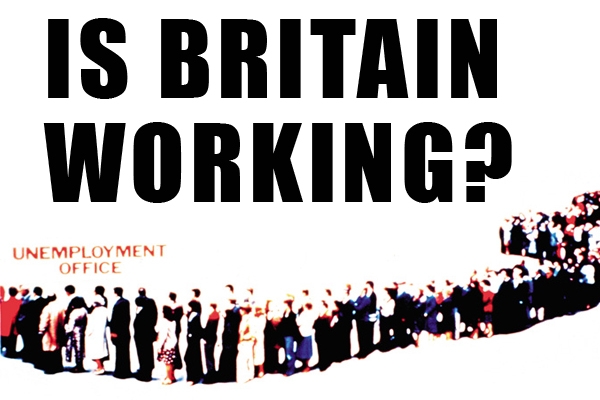Today’s job statistics are, as usual, mixed — and even a touch confusing. Last month, the headline was that the unemployment had risen to 2.56 million. This month, we’re told that it’s risen again — to 2.52 million. How can both be right? Because the point of comparison is not the previous month, but the previous quarter. Still, the fall in employment and rise in unemployment is really last month’s news, not this month’s.


As ever, it’s worth remembering the margin of error of all these estimates, which dwarfs the quarterly changes — so we don’t actually know whether they rose, fell or stayed the same. But there are some trends that we can identify.
Earlier in the recovery, jobs growth was flattered by rising numbers of part-time and self-employed workers. That’s much less the case now: three quarters of the 434,000 rise in employment in the past year is accounted for by full-time employees.

In fact, the total number of hours worked in the UK has now fully recovered from the recession to a new all-time high of 950.3 million a week. That number has risen by 2.2 per cent in the last year — though with GDP up by just 0.6 per cent in the same period, that further deepens the productivity puzzle.

Also, for the first time, the ONS has published the number of Romanians and Bulgarians working in the UK, to help inform the debate over the lifting of transitional controls next January. It shows that there are already around 100,000 of them — up from 10,000 a decade ago and about 30,000 when they joined the EU in January 2007.







Comments